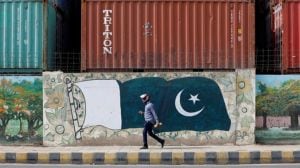The Second Writer
Love Mario Vargas Llosa? Then you also love Edith Grossman,his translator.
Love Mario Vargas Llosa? Then you also love Edith Grossman,his translator.
When Mario Vargas Llosa won the Nobel Prize for Literature this month,it was tempting to imagine a rare post-Nobel stillness in bookshops. Llosa is so widely read around the world that you could safely bet against the post-announcement scramble to catch up on the winners works. He is so beloved of readers that it was like a reminder to catch with an old and sturdy friend to dust up an old copy of Aunt Julia and the Scriptwriter 1977,English edition 1982 to approximate the first,dazzling thrill of discovering a great writer,or to pick up the more recent The Feast of the Goat 2000,2002,and wonder whether Llosa actually went one past other Latin American novelists and set a template for fictionalising dictatorships. Certainly,its influence is spread far; for instance,upon the publication of A Case of Exploding Mangoes 2008,Pakistani writer Mohammed Hanif readily announced Llosas influence.
Its the give and take between literatures around the world,and no matter what language you prefer to read your fiction in,chances are Llosa would be available to you. For those of us English-reading folks,much of it is made possible by Edith Grossman,translator from the Spanish of Llosas The Bad Girl,The Feast of the Goat,The Notebooks of Don Rigoberto and Death in the Andes and many other Latin American novels,including Gabriel Garcia Márquezs Love in the Time of Cholera. A reading of her recently published volume Why Translation Matters is,therefore,timely; an expanded version of lectures she presented at Yale University,it is a notice that the celebrations are missing a crucial link: the translator.
Grossman is well placed to say,hey,remember those invisible people who toil to bring you literature from other languages,allow you to shift your reading around,and inhabit a civilisational space unlimited by your linguistic limitations,because she is in fact not so invisible. We know our Márquez,and we know what it must mean to gain his consent to translate his books. She can be angry on behalf of her profession,precisely because its not a personal case of sour grapes. And the anger is constructive,because to go through the paces of a translators task is to be made conscious of our task as readers,to deepen our connect to this mediator of foreign texts who feels so undervalued by publishers and ignored by critics,to understand that when we read Llosa,we are also reading Grossman,or someone like her.
In an early passage she details the ambitious questions she has set herself up to answer: I believe that serious professional translators,often in private,think of themselves forgive me,I mean ourselves no matter what else may cross our minds when we ponder the work we do,and I also believe we are correct we do so. Is this sheer presumption,a heady kind of immodesty on our part? What exactly do we literary translators do to justify the notion that the term writer actually applies to us? Arent we simply the humble,anonymous handmaids-and-men of literature,the grateful,ever-obsequious servants of the publishing industry? In the most resounding yet decorous terms I can muster,the answer is no,for the most fundamental description of what translators do is that we write or perhaps rewrite in language B a work of literature originally composed in language A,hoping that readers of the second language I mean,of course,readers of the translation will perceive the text, emotionally and artistically,in a manner that parallels and corresponds to the esthetic experience of its first readers. That is the translators grand ambition. Good translations approach that purpose. Bad translations never leave the starting line.
Using a series of examples,Grossman makes the highest claim for her art: Why does translation matter,and to whom? I believe it matters for the same reasons and in the same way that literature matters because it is crucial to our sense of ourselves as human. Perhaps,she suggests later,part of the problem is that we are still to develop a critical vocabulary to assess translations. She also introduces a more suitable title for a translator: the second writer.
It brings to mind Canadian writer Carol Shields last and Booker-shortlisted novel Unless 2002. A personal crisis has thrown Reta Winters into a stocktaking of her life; and that includes gauging whats her worth as a translator of her former teacher Danielle Westermans collection of poetry: I am a little uneasy about claiming Isolation as my own writing,but Dr Westerman,doing one of her hurrying,over-the-head gestures,insisted that translation,especially of poetry,is a creative act. Writing and translating are convivial,she said,not oppositional,and not at all hierarchical. Not at all hierarchical you have to wager that Grossman would agree,and would imbibe from that passage a challenge as a translator,not consolation.
mini.kapoorexpressindia.com
- 01
- 02
- 03
- 04
- 05






























